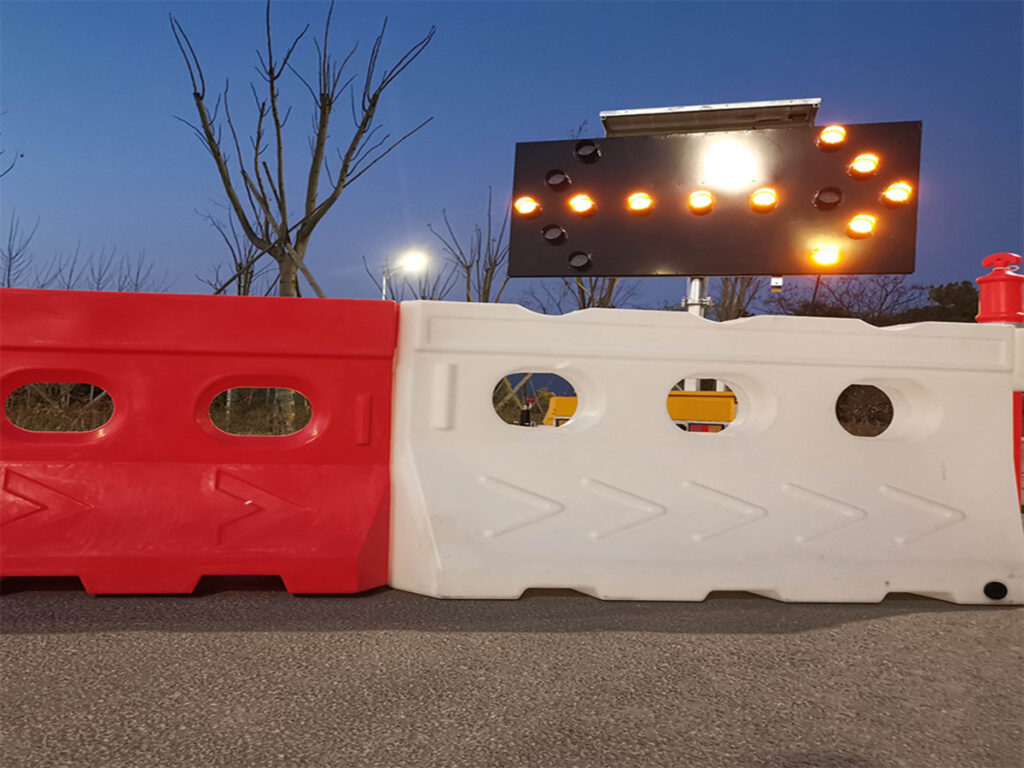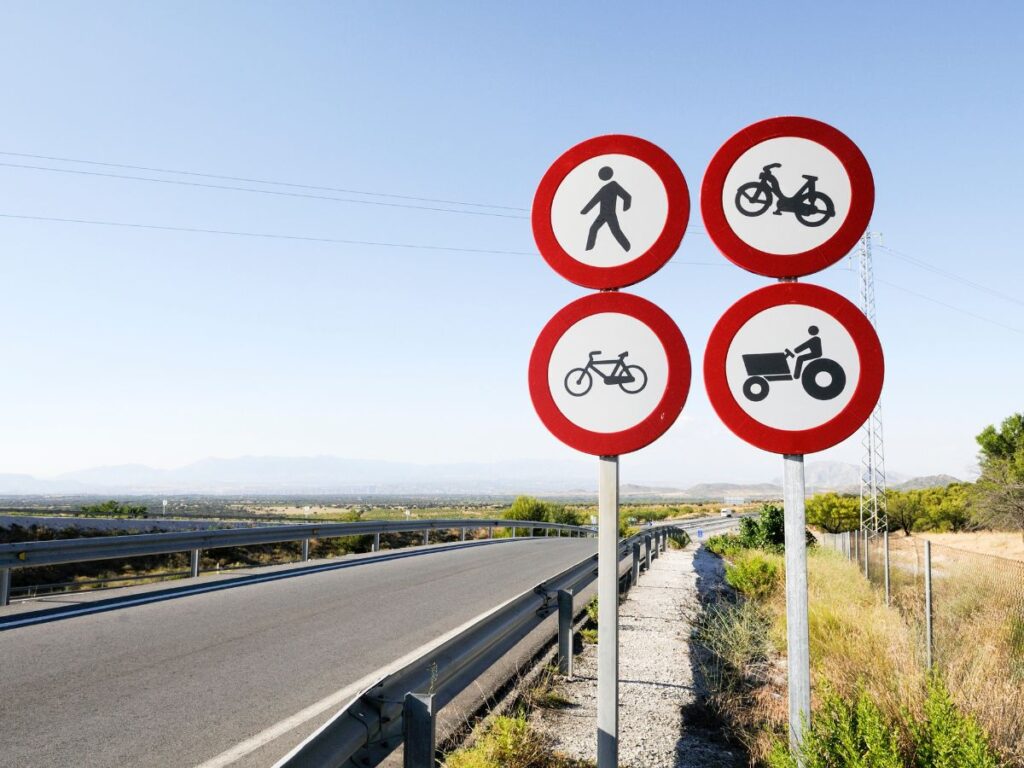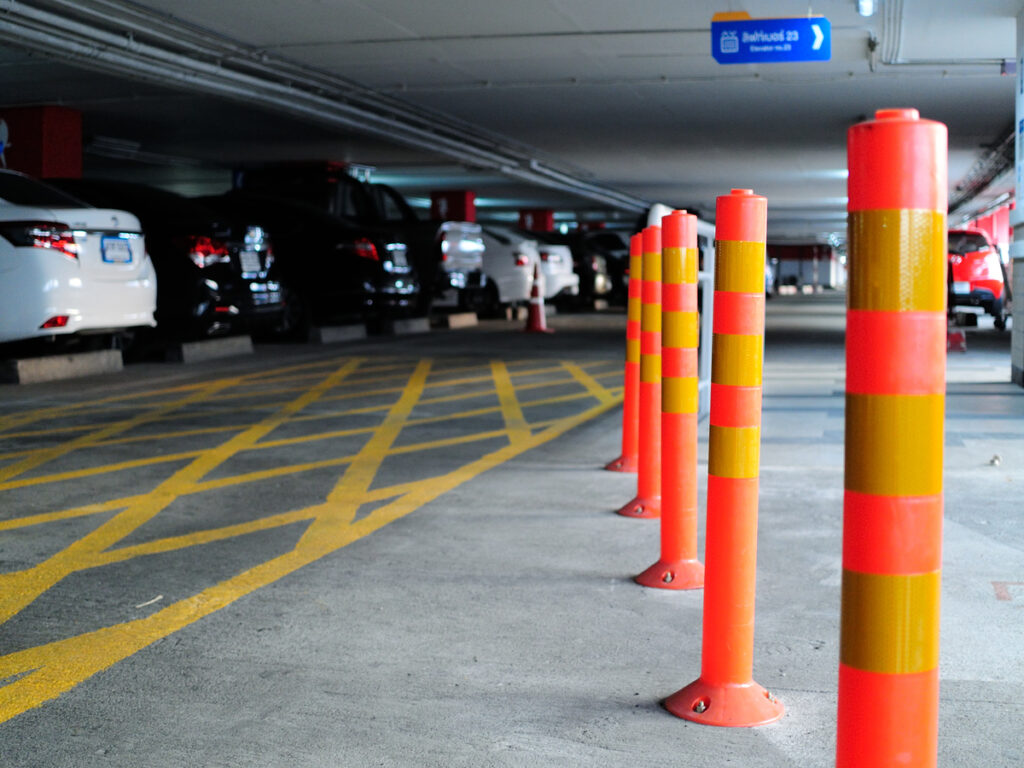
The Закон об американцах с ограниченными возможностями помогает сделать общественные места справедливыми для всех. The 2023 Изменения исправляют проблемы в доступной парковке для повышения безопасности. Эти обновления решают такие проблемы, как незаконная парковка и старые правила. Текущие правила говорят только 1 в 25 Пространства должны быть доступны. Но исследования показывают, что необходимы более доступные пространства. Посты графиков трафика теперь помогают отметить парковочные места и прекратить неправильное использование. Эти изменения гарантируют правила и включают всех.
Учитывая эти обновления, Разграничители трафика OPTRAFFIC уже удовлетворили потребности многих клиентов по всей территории США.. предоставляя четкие, эффективные решения, помогающие удовлетворить Требования АДА. Эти разграничители дорожного движения помогают предотвратить незаконную парковку, улучшить видимость доступных пространств, и обеспечить правильное использование парковочных мест. Если вы хотите сделать свои парковочные зоны доступными и соответствующими требованиям ADA, Прочные и хорошо заметные разграничители OPTRAFFIC — идеальный выбор, который поможет вам соблюдать правила и обеспечит более безопасную транспортировку., более инклюзивная среда для всех.
Ключевые выводы
- The 2023 Изменения ADA упрощают парковку для всех.
- Пространства фургонов теперь должны быть шире и выше для пандусов..
- Сообщения показывают доступные места, чтобы предотвратить неправильное использование и повысить безопасность..
- Для удобства эти места должны располагаться близко к дверям и пешеходным переходам..
- Знаки и дорожки помогают людям быстро и безопасно находить эти места..
Ключевые изменения в 2023 ADA обновления
Обновленные стандарты доступной парковки
Требования к размерам и уклону парковочных мест и подъездов.
The 2023 Обновления ADA устанавливают четкие правила для парковочных мест. Эти правила помогают людям с ограниченными возможностями легко передвигаться.. Каждое пространство должно иметь определенную ширину и длину.. Доступ к проходам, используется для инвалидных колясок, должен иметь пологий уклон. Склон не может быть круче 1:48. Это предотвращает скопление воды и обеспечивает плавность движения.. Соблюдение этих правил делает парковку справедливой и соответствующей требованиям ADA..
Новые правила для парковочных мест, доступных для фургонов.
Места, доступные для фургонов теперь нужны дополнительные изменения. Эти пространства должны быть шире для фургонов с пандусами или лифтами.. Вертикальный зазор должен быть не менее 98 дюймы. Это гарантирует, что фургоны могут безопасно въезжать и выходить.. Эти обновления демонстрируют внимание ADA к пользователям фургонов.’ потребности. Добавление этих изменений поможет всем, включая пользователей фургонов, легко получить доступ к общественным местам.
Повышенная доступность в общественных местах
Близость к доступным подъездам и пешеходным переходам.
Доступные парковочные места должны находиться вблизи подъездов и пешеходных переходов.. Это облегчит передвижение людям с ограниченными возможностями.. Это также помогает им без проблем добраться до тротуаров и зданий.. Исследования показывают, что хороший дизайн повышает безопасность и удобство.. Это ключ к эффективной работе программ доступности..
Четкие указатели и обозначенные пешеходные маршруты..
Знаки важны для поиска доступных парковочных мест.. Их должно быть легко увидеть и понять.. Это помогает каждому быстро найти эти места.. Безопасные пешеходные дорожки от парковки до входов также улучшают доступ.. Группы инвалидов утверждают, что эти функции делают общественные места более инклюзивными..
Внедрение постов для разграничения трафика
Их роль в разметке доступных парковочных мест.
Посты, разграничивающие трафик, теперь являются частью правил ADA.. Эти столбы четко обозначают доступные места.. Это помогает сохранить эти места зарезервированными для людей с ограниченными возможностями.. Четкая маркировка уменьшает путаницу и обеспечивает соответствие требованиям ADA..
Предотвращение несанкционированной парковки и повышение безопасности.
Несанкционированная парковка в доступных местах вызывает проблемы. Посты с разметкой трафика помогают остановить такое злоупотребление. В таблице ниже показаны различные типы сообщений и их использование.:
| Тип сообщения | Ключевые функции | Идеальные приложения |
|---|---|---|
| Сообщение MP2 | – Сильный, выгибается назад после удара – Регулируемая высота и видимость – Работает в плохую погоду | Общая дорожная разметка, безопасность велосипедной дорожки, использование парковки |
| Туф Пост | – Яркий цвет – Гибкий и прочный – Многоцелевое использование | Дорожные изменения, зоны повышенной видимости |
| ОмегаПост | – Очень сильный – Протестировано для быстродвижущегося трафика. | Шоссе, платные дороги, зоны с интенсивным движением транспорта |
Добавление этих постов сделает парковку безопаснее. Он также сохраняет доступные пространства открытыми для тех, кто в них нуждается..
Правила ADA для доступных парковочных мест
Дизайн парковочного места
Правила минимального размера и уклона.
The Ада имеет четкие правила парковочных мест. Эти правила гарантируют, что люди с ограниченными возможностями смогут легко ими пользоваться.. Каждое пространство должно быть широким и достаточно длинным для автомобилей и инвалидных колясок.. Доступ к проходам, используется для входа и выхода, должен иметь пологий уклон. Склон не может быть круче 1:48. Это предотвращает скопление воды и сохраняет поверхность гладкой.. Эти правила помогают сделать общественные места справедливыми и простыми в использовании..
Особые правила для мест, доступных для фургонов.
Места, доступные для фургонов нужны дополнительные функции. Они должны быть шире для фургонов с пандусами или подъемниками.. Вертикальное пространство должно быть не менее 98 дюймы высотой. Это гарантирует безопасное передвижение фургонов.. Эти изменения показывают Ада заботится о пользователях фургонов. Они помогают сделать общественные места открытыми для всех..
Расположение и доступность
Рядом с подъездами и пандусами.
Доступные парковочные места должны располагаться вблизи входов и пандусов.. Это облегчает людям с ограниченными возможностями доступ внутрь зданий.. Бордюрные пандусы помогают соединить парковочные зоны с тротуарами. Это создает гладкий путь для всех. Правильное размещение этих пространств улучшает доступ и поддерживает справедливость..
Удобные маршруты доступа.
Подъездные пути должны соединять парковочные места со зданиями и тротуарами.. Эти пути должны быть короткими и свободными от препятствий.. Должно быть, это самый простой способ передвижения.. Соблюдение этих правил делает общественные места более гостеприимными и справедливыми для всех..
Знаки и маркировка
Четкие и легко различимые знаки.
Знаки важны для поиска доступных парковочных мест.. Они должны показать международный символ доступности.. Знаки должны располагаться на правильной высоте и быть хорошо видимыми.. Прочные материалы сохраняют полезность вывесок даже в оживленных местах.. Эти шаги демонстрируют заботу о доступности и справедливости..
Маркировка, которая поможет каждому.
Хорошая разметка на парковочных местах и проходах очень важна.. Яркие цвета позволяют легко увидеть. Такие функции, как шрифт Брайля, помогают людям с нарушениями зрения.. Эта разметка упрощает поиск и использование парковочных мест.. Несоблюдение этих правил может вызвать проблемы, поэтому важно сделать это правильно.

Кончик: Использование таких инструментов, как электронные трекеры, может остановить неправомерное использование доступных парковочных мест и улучшить соблюдение правил..
Роль разделителей трафика в обеспечении доступности
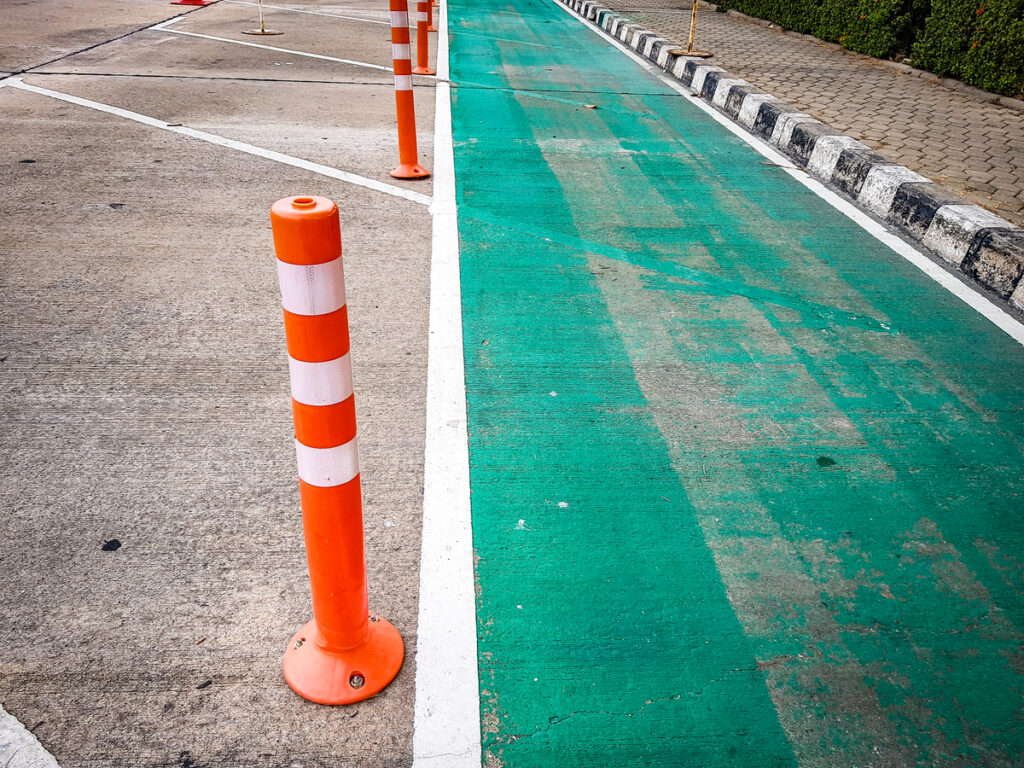
Цель и преимущества
Разметка парковочных мест и пешеходных дорожек.
Столбы, разграничивающие дорожное движение, помогают упростить использование общественных мест.. Они показывают, где расположены парковочные места и пешеходные дорожки.. Это помогает людям найти свой путь, даже в сложных местах. Эти столбики-разграничители дорожного движения направляют водителей и обеспечивают плавное движение транспорта.. Они также отделяют автомобили от пешеходов., сделать всех безопаснее.
Посты с разметкой дорожного движения также помогают показывать повороты дороги или смену полосы движения.. Они дают четкие указания на парковках и в оживленных местах.. Это позволяет каждому безопасно передвигаться.
Прекращение злоупотребления доступными пространствами.
Парковка в доступных местах без разрешения вызывает проблемы. Столбы, разграничивающие дорожное движение, предотвращают это, выступая в качестве барьеров.. Они держат эти пространства открытыми для людей, которые в них нуждаются.. Это помогает защитить права людей с ограниченными возможностями.. Это также обеспечивает справедливый доступ к общественным местам..
Стандарты ADA для сообщений разграничения трафика
Высота, видимость, и сильные материалы.
Должны следовать посты с разметкой дорожного движения. Ада правила. Они должны быть достаточно короткими для людей в инвалидных колясках, но при этом легко видимыми.. Яркие цвета и светоотражающие материалы делают их заметными., даже ночью. Прочные материалы помогают им выдержать плохую погоду и интенсивное использование..
Размещение во избежание блокировки путей.
Сообщения необходимо размещать внимательно, чтобы следить Ада правила. Они не должны блокировать тротуары, пандусы, или пути. Вместо, они должны направлять людей, не создавая проблем. Правильное размещение делает общественные места безопасными и простыми в использовании..
Делаем общественные места безопаснее
Снижение рисков для людей с ограниченными возможностями.
The Ада устанавливает правила, чтобы сделать пространство более безопасным для всех. Эти правила помогают снизить опасности для людей с ограниченными возможностями. Инклюзивный дизайн гарантирует, что каждый будет чувствовать себя желанным гостем и в безопасности.. Это также помогает предотвратить несправедливое обращение.
Помогаем водителям и пешеходам найти дорогу.
Столбы с разметкой дорожного движения облегчают передвижение. Водители могут четко видеть места для парковки. Пешеходы могут следовать безопасными путями. Эти столбики для разграничения дорожного движения помогают поддерживать порядок и доступность общественных мест.. Они важны для того, чтобы сделать пространство справедливым и простым в использовании..
Примечание: Важно установить и ухаживать за столбами, разграничивающими дорожное движение.. Это гарантирует, что они встречаются Ада правила и поддерживать инклюзивное сообщество.
Рекомендации для сообщений разграничения трафика, соответствующих требованиям ADA
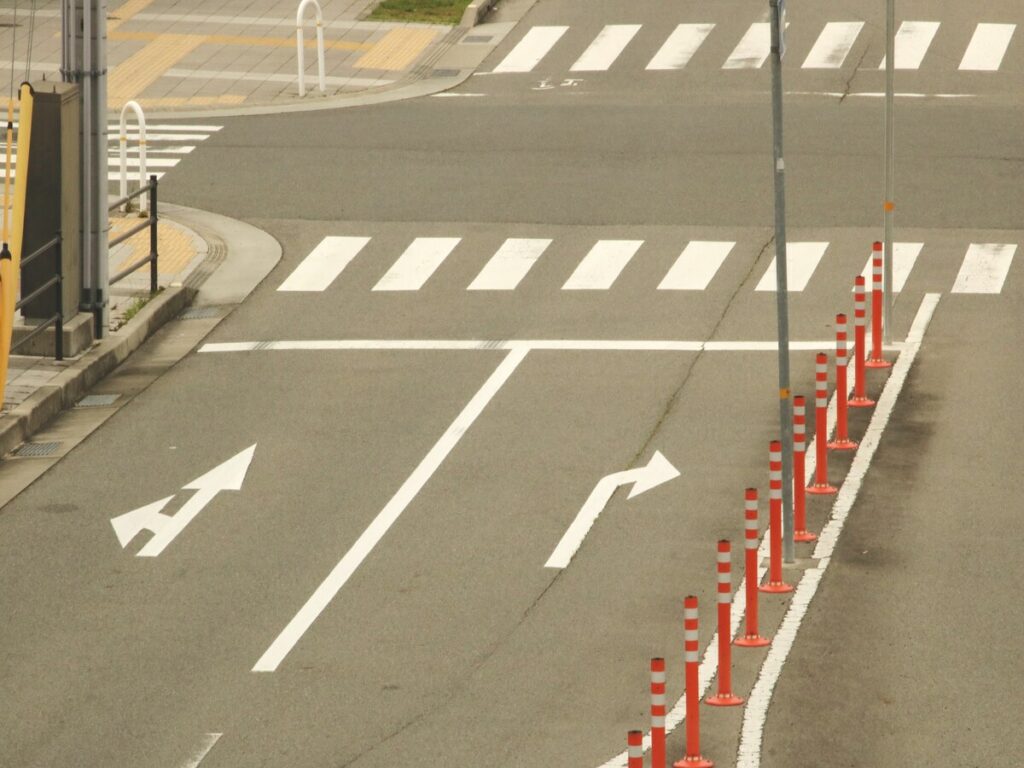
Особенности, которые следует учитывать
Короткая высота, сильная база, и легко увидеть.
Выбирайте столбы для разграничения дорожного движения, которые повышают безопасность и доступность.. Короткие посты не будут блокировать инвалидные коляски или дорожки.. Прочное основание не дает им упасть или причинить вред.. Яркие цвета или светоотражающие детали позволяют легко их заметить., даже ночью. Эти особенности следуют Ада правила и помогайте всем пользоваться общественными местами.
Прочные материалы для плохой погоды и интенсивного использования..
Выбирайте столбы для разграничения дорожного движения, сделанные из прочных материалов.. Они могут справиться с плохой погодой, загруженное движение, и шишки. Например, а Столбы для разграничения дорожного движения OPTRAFFIC может выжить 50 попадает в 55 Миль в час. Это делает его идеальным для оживленных мест.. Сильные посты, обозначающие трафик, служат дольше и требуют меньше затрат на исправление.. Использование хороших материалов помогает сохранить пространство открытым и справедливым для всех..
Предложения по продуктам
Примеры постов, которые соответствуют Ада правила.
Некоторые сообщения, обозначающие трафик, хорошо работают с Ада стандарты. The пост разграничителя дорожного движения сильный и яркий, идеально подходит для парковок и велосипедных дорожек. Пост-разграничитель дорожного движения OPTRAFFIC гибкий и видимый, идеально подходит для медленных областей.
Почему эти публикации повышают безопасность и справедливость.
С использованием Ада-одобренные публикации делают общественные места лучше. Они запрещают людям без разрешения парковаться на местах для инвалидов. Они также безопасно направляют водителей и пешеходов.. Эти Столбы для разграничения дорожного движения OPTRAFFIC четко обозначить дорожки и парковку, Помогает всем. Выбор правильных постов способствует справедливости и инклюзивности..
Лучшие практики установки
Размещайте посты там, где они не загораживают пути..
Разместите столбы, разграничивающие движение транспорта, в местах, где пути остаются открытыми.. Не загораживайте тротуары, пандусы, или маршруты. Вместо, используйте их, чтобы направлять людей к входам и путям. Работайте с экспертами по трафику, чтобы найти лучшие места для публикаций..
Как обеспечить хорошую работу публикаций.
Часто проверяйте и исправляйте публикации, чтобы оставаться Ада-соответствие. Погода и движение могут изнашивать их.. Знайте, что нужно вашему пространству, чтобы публикации были полезными. Выполнение этих шагов сделает пространство более безопасным и справедливым для всех..
Кончик: Поговорите с местными инспекторами дорожного движения, чтобы быть в курсе событий. Ада правила и убедитесь, что ваши публикации соответствуют новейшим стандартам.
The 2023 Обновления ADA направлены на упрощение использования общественных мест для всех.. Эти изменения улучшают планировку парковок., добавить сообщения о пробках, и сделать пространства более доступными для людей с ограниченными возможностями. Вы можете помочь, проверив свои здания и соблюдая правила ADA.. Доступные тротуары, двери, и варианты транспорта облегчают жизнь всем. Поддерживая доступность, вы помогаете остановить несправедливое обращение и создать более справедливый мир.
Чтобы ваши помещения соответствовали новейшим стандартам ADA., ОПТРАФИК предлагает долговечный, хорошо видимые разграничители дорожного движения, предназначенные для улучшения доступности парковки и предотвращения неправильного использования. Сделайте свою парковку соответствующей требованиям, безопаснее, и более инклюзивно сегодня!
Часто задаваемые вопросы
Какова цель 2023 Обновления АДА?
The 2023 Обновления ADA направлены на то, чтобы сделать общественные места безопаснее. Они сосредоточены на доступных парковках и столбах, разграничивающих дорожное движение.. Эти изменения соответствуют современным правилам и помогают привлечь людей с ограниченными возможностями..
Как сообщения с разметкой трафика помогают улучшить доступность?
Столбы с разметкой дорожного движения четко обозначают места для парковки и пешеходные дорожки.. Они мешают людям парковаться там, где им не следует. Их яркие цвета и расположение облегчают передвижение каждому..
Каковы ключевые особенности постов для разграничения трафика, соответствующих требованиям ADA??
Сообщения, соответствующие требованиям ADA, должны быть короткими и легко читаемыми.. Они не должны блокировать пандусы или пути.. Яркие цвета и светоотражающие детали делают их видимыми и безопасными для всех..
Где должны располагаться доступные парковочные места?
Доступные парковочные места должны располагаться вблизи въездов или пандусов.. Это облегчает людям доступ к тротуарам и зданиям.. Соблюдение этих правил помогает обеспечить безопасность и справедливость в пространствах..
Почему правильные указатели важны для доступной парковки?
Хорошие знаки помогают людям быстро найти доступную парковку. Знаки должны иметь символ доступности и быть легко читаемыми.. Четкие вывески соответствуют правилам ADA и делают пространство удобным для всех..
Кончик: Регулярно проверяйте свою парковку, чтобы знаки были четкими и соответствовали требованиям ADA..

